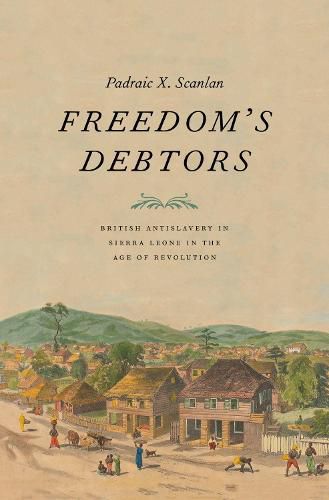Readings Newsletter
Become a Readings Member to make your shopping experience even easier.
Sign in or sign up for free!
You’re not far away from qualifying for FREE standard shipping within Australia
You’ve qualified for FREE standard shipping within Australia
The cart is loading…






A history of the abolition of the British slave trade in Sierra Leone and how the British used its success to justify colonialism in Africa
British anti-slavery, widely seen as a great sacrifice of economic and political capital on the altar of humanitarianism, was in fact profitable, militarily useful, and crucial to the expansion of British power in West Africa. After the slave trade was abolished, anti-slavery activists in England profited, colonial officials in Freetown, Sierra Leone, relied on former slaves as soldiers and as cheap labor, and the British armed forces conscripted former slaves to fight in the West Indies and in West Africa.
At once scholarly and compelling, this history of the abolition of the British slave trade in Sierra Leone draws on a wealth of archival material. Scanlan’s social and material study offers insight into how the success of British anti-slavery policies were used to justify colonialism in Africa. He reframes a moment considered to be a watershed in British public morality as rather the beginning of morally ambiguous, violent, and exploitative colonial history.
$9.00 standard shipping within Australia
FREE standard shipping within Australia for orders over $100.00
Express & International shipping calculated at checkout
Stock availability can be subject to change without notice. We recommend calling the shop or contacting our online team to check availability of low stock items. Please see our Shopping Online page for more details.
A history of the abolition of the British slave trade in Sierra Leone and how the British used its success to justify colonialism in Africa
British anti-slavery, widely seen as a great sacrifice of economic and political capital on the altar of humanitarianism, was in fact profitable, militarily useful, and crucial to the expansion of British power in West Africa. After the slave trade was abolished, anti-slavery activists in England profited, colonial officials in Freetown, Sierra Leone, relied on former slaves as soldiers and as cheap labor, and the British armed forces conscripted former slaves to fight in the West Indies and in West Africa.
At once scholarly and compelling, this history of the abolition of the British slave trade in Sierra Leone draws on a wealth of archival material. Scanlan’s social and material study offers insight into how the success of British anti-slavery policies were used to justify colonialism in Africa. He reframes a moment considered to be a watershed in British public morality as rather the beginning of morally ambiguous, violent, and exploitative colonial history.